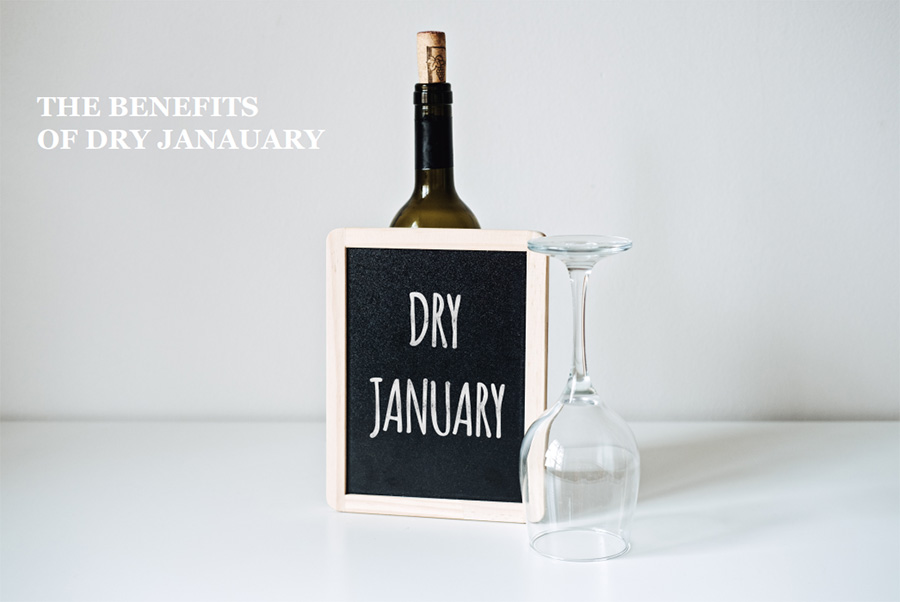Each year, as the calendar turns from December to January, millions of people around the world participate in a health and wellness campaign known as “Dry January.” A month of abstinence from alcohol, Dry January purposefully follows the end-of-year holiday season, where alcohol is often prevalent and partying with family and friends is often viewed as more than just “socially acceptable.”
 Started in 2013 in the United Kingdom, the campaign of Dry January was founded by Emily Robinson who noticed the health benefits of abstaining from alcohol for a month as she prepared to run a half marathon. As she recognized the health and wellness benefits of not drinking alcohol for a month, she also noticed that people were taking an interest in her personal campaign and were becoming motivated to partake in similar ways in their own lives. 2023 marks the 10th anniversary of the campaign of Dry January.
Started in 2013 in the United Kingdom, the campaign of Dry January was founded by Emily Robinson who noticed the health benefits of abstaining from alcohol for a month as she prepared to run a half marathon. As she recognized the health and wellness benefits of not drinking alcohol for a month, she also noticed that people were taking an interest in her personal campaign and were becoming motivated to partake in similar ways in their own lives. 2023 marks the 10th anniversary of the campaign of Dry January.
Dry January is an initiative that engages all types of people and allows them to examine or reexamine their relationship with alcohol. There are some people who take part in Dry January simply because their alcohol intake has become excessive over the last few months of the previous year; there are people who take part in Dry January because as their New Year’s resolution, they are wanting to create a more healthy lifestyle revolving around fitness and wellness; and there are people that take part in the Dry January campaign because they believe their relationship with alcohol is dangerous and are trying to moderate their drinking or begin to take steps to stop drinking as much as they have previously or altogether.
Regardless of the reasons that people take part in Dry January, there are many recent studies and health experts who have recently begun to sing the benefits of Dry January and other moderation or abstinence campaigns and initiatives. The truth is that the alcoholic tendencies of Americans has risen sharply during the COVID-19 pandemic, and that such a drinking culture has a negative impact on people’s mental health, emotional well-being, and can often lead to substance use disorder. Because of this, health experts have started looking more closely at health and wellness initiatives like Dry January. What they’ve found is that, regardless of what type of drinker someone is or what type of healthy or unhealthy relationship they have with alcohol, Dry January has numerous health benefits and, often, they can last well past a single month and often support a long-lasting lifestyle of health and wellness.
Some of the major benefits of Dry January include:
- People just “feel better”
- There are medical benefits, including improved cholesterol levels, sugar levels, and blood pressure levels, as well as improved liver functioning
- Improved metabolism and potential weight loss
- Improved sleep
- Increased energy
- Clearer or better-looking skin
- Improved immune system functioning
- Decreased levels of anxiety or depression
- Less headaches
- Less consequences from alcohol, including no hangovers, blackouts, physical accidents, or embarrassing or detrimental social interactions
Therefore, there is little doubt that Dry January supports an increase in health and wellness and an overall healthy lifestyle. And these benefits, according to experts, can last the entire year or, even better, lead to long-term positive lifestyle changes. So, how can people approach Dry January as a springboard for a healthier relationship with alcohol and a potential for creating long-standing health and wellness changes? Here are ways that experts believe the benefits of Dry January can last long past the month, and steps people can take to make sure the positive changes they see will be sustainable:
- Make concrete goals
- Make sure those goals are attainable and achievable
- Track your progress
- Find a healthy support system through family, friends, and if necessary, professionals
- Find fun alternatives to drinking
- Avoid situations that may be triggering emotionally or based around alcohol, and have a plan in place if unavoidable situations present themselves
- Create a plan to say no in situations where alcohol is present, such as a restaurant, family gathering, party, or other social affair
- Have a plan if you slip up and drink to get back on track
- Find alternatives to alcohol, such as sparkling water, club soda, or mocktails
- Have fun with it, go all in, commit to the process, and enjoy the journey!
If you or someone you know needs help for addiction or co-occurring disorder issues, please give us a call. Maryland Addiction Recovery Center offers the most comprehensive dual-diagnosis addiction treatment in the Mid-Atlantic area. If we aren’t the best fit for you or your loved one, we will take the necessary time to work with you to find a treatment center or provider that better fits your needs. Please give us a call at (866) 929-4318 or email our team at info@marylandaddictionrecovery.com. For more information on all of our drug addiction, alcohol addiction, and co-occurring disorder services and recovery resources, please visit our website at www.marylandaddictionrecovery.com.
